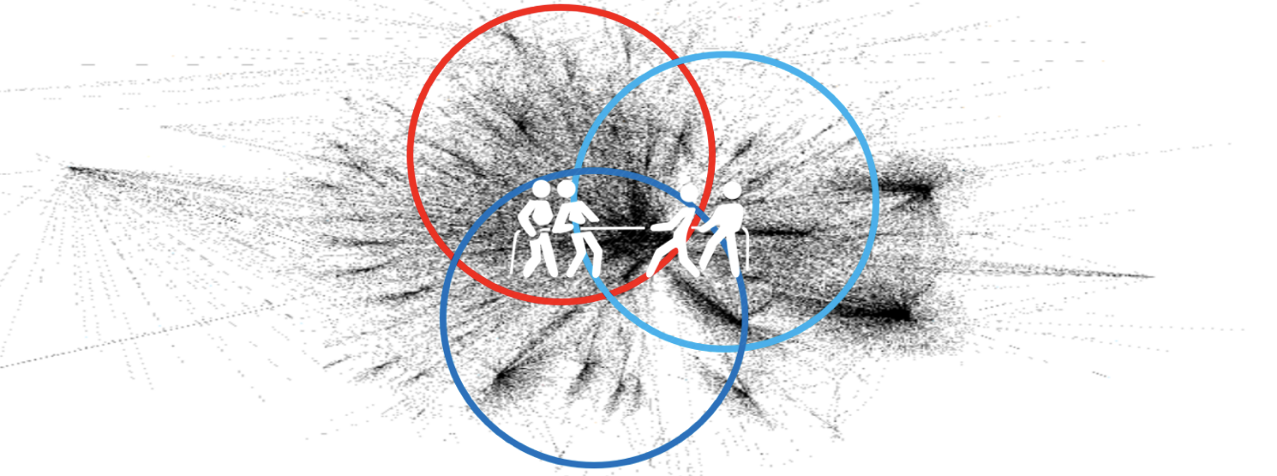Anti-Biden hashtag amplified by opposite political audiences
Supporters of Sanders, Trump, and other candidates all contributed to the hashtag’s rise on Twitter
Anti-Biden hashtag amplified by opposite political audiences

Supporters of Sanders, Trump, and other candidates all contributed to the hashtag’s rise on Twitter

As the impeachment trial heated up in the U.S. Senate and the Iowa caucuses approached, a range of actors on both the left and the right of the political spectrum amplified a hashtag denouncing former U.S. Vice President and current presidential candidate Joe Biden.
The hashtag’s bipartisan rise demonstrated that trending topics cannot be viewed as clear-cut indicators of popular sentiment: a January 20 poll placed Biden in the lead of the presidential race, while a poll on January 22 showed Biden and U.S. Senator Bernie Sanders tied as frontrunners in the Democratic primary. More recent polls have shown little impact on Biden’s position at or near the top of the candidate pool.
#BidenIsCorrupt spiked after Fordham University law professor and Sanders supporter Zephyr Teachout published a January 20 op-ed in The Guardian on what she referred to as Biden’s “big corruption problem”: his alleged pandering to corporate interests while maintaining the illusion that he is the right candidate for the middle class. The Sanders campaign amplified Teachout’s piece in a campaign newsletter, but Sanders himself later apologized to Biden for the op-ed, clarifying that “it is absolutely not my view that Joe Biden is corrupt in any way.” Despite Sanders’s apology, #BidenIsCorrupt continued to gain traction on Twitter, with over 23,000 mentions by January 21.
Previously, the hashtag had spiked on September 25, a day after the formal impeachment inquiry was announced. However, the majority of the 894 mentions on September 25 were retweets of a single tweet.

Like the #NeverWarren hashtag, which trended on Twitter in part because Warren supporters condemning it repeatedly mentioned it online, #BidenIsCorrupt was appropriated by a variety of political forces tweeting the hashtag for different reasons.

Some Republicans used the hashtag to emphasize common partisan impeachment talking points, including Democrats’ malfeasance in the impeachment process, the Biden family’s alleged corruption, and Trump’s innocence.
#BidenIsCorrupt and he is toast!
Voting for Trump, is what we love most
The Democrats are liars
Throw your articles of impeachment in the fires#Trump2020 from the mountains to the coast!— Sanctified Seminole! ✝️🍢 (@seabass4592) January 22, 2020
Some Sanders supporters used the hashtag to condemn Biden and advocate instead for Sanders, while other Democrats tweeted it to denounce Democratic in-fighting and emphasize the necessity of voting for the eventual Democratic candidate, no matter who the nominee may be.
Still others used the hashtag to point out the corruption of both Trump and Biden, tacking on the counter-hashtag #TrumpIsCorrupt.
The different political forces are shown in the network map below, with a focus on accounts that support Donald Trump (pink), Bernie Sanders (orange), and Joe Biden (green). These political affiliations were labeled only when accounts tweeted pro-candidate hashtags in addition to the hashtag #BidenIsCorrupt — for example, tweets including “#Trump2020” were labeled as pro-Trump, but tweets solely including the hashtag “#Trump” were not.

Visualizing the network of retweets revealed a constellation of community clusters: multiple smaller groups on the same topic that “often form around a few hubs each with its own audience, influencers, and sources of information.” The presence of these community clusters can indicate that the discussions on a particular topic on Twitter are polarized, with the majority of online interaction occurring among like-minded users. In the Twitter debate over #BidenIsCorrupt, Sanders and Trump supporters largely retweeted users with the same political affiliation as themselves.
While the hashtag did not attract much attention in U.S. media, Kremlin-owned outlet Sputnik wrote about its rise, framing it within the context of the ongoing impeachment trial against President Trump as a possible attempt to distract from the latter.
As the 2020 race draws near, polarized political discussions will no doubt continue to rise to the top of Twitter’s trending topics. The conversations themselves, however, may be far more heterogenous in structure and sentiment than they initially appear.
Follow along on Twitter for more in-depth analysis from our #DigitalSherlocks.

